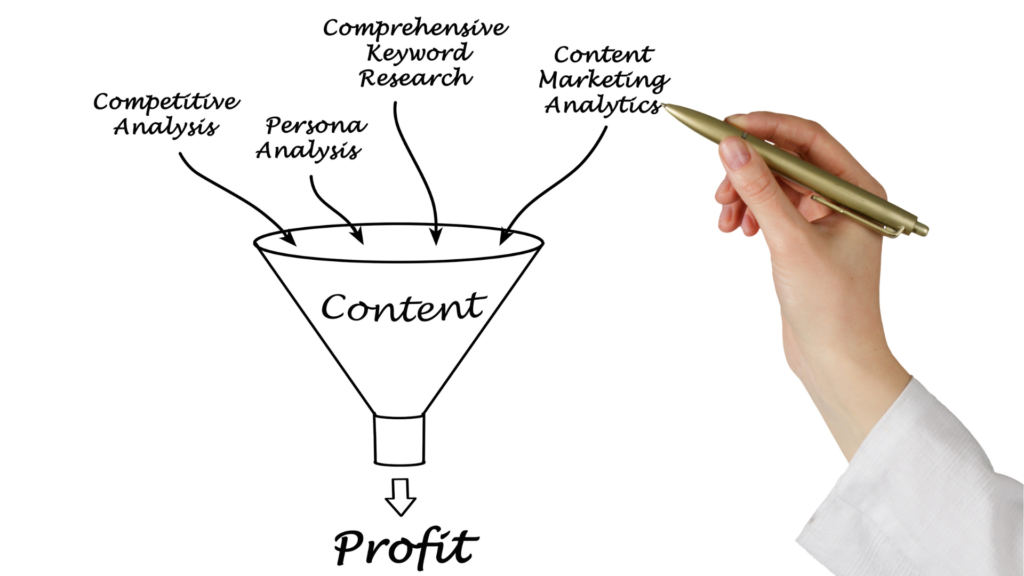A Complete Guide to Getting Featured in AI Search Results for Content Marketing & Lead Generation
Q1: How do I create content that actually converts leads for my bootstrapped startup?
A: The key to conversion-focused content for bootstrapped startups lies in strategic positioning over volume. Start by identifying your audience’s specific pain points—not generic industry problems, but the exact frustrations keeping your ideal customers up at 2 AM.
For bootstrapped startups, focus on:
- Problem-solution storytelling that demonstrates immediate value
- Case study content showing measurable results (like the 558% impression increase we achieved for DEWM)
- Educational content that solves problems while subtly positioning your solution
- Social proof integration through testimonials and success metrics
The secret is combining strategic communications principles with AI-powered content optimization. This means understanding not just what to say, but when and how to say it for maximum impact.
Q2: What’s the most effective content marketing strategy for defense contractors and B2B startups?
A: Defense contractors and niche B2B startups need hyper-targeted content strategies that speak directly to procurement decision-makers and industry stakeholders.
Winning approach:
- Thought Leadership Content addressing industry-specific challenges
- LinkedIn-first strategy targeting decision-makers in your niche
- Video content that can be repurposed across multiple channels
- Podcast appearances to reach new audiences within your sector
For defense contractors specifically, focus on content that addresses:
- Compliance and security concerns
- ROI and cost-effectiveness
- Technical capabilities without revealing sensitive information
- Success stories from similar organizations (with appropriate permissions)
The key is building credibility through consistent, valuable content that demonstrates expertise rather than just selling products.
Q3: How can startup founders compete with bigger companies using content marketing on a limited budget?
A: Bootstrapped startups actually have advantages over larger companies—agility, authentic founder stories, and the ability to move quickly on trends.
Budget-smart strategies:
- Leverage founder personal branding on LinkedIn and industry platforms
- Repurpose single pieces of content across 5-7 different formats
- Focus on organic social rather than expensive paid campaigns initially
- Create viral-worthy content by addressing controversial industry topics
- Partner with complementary businesses for content collaboration
My client case study shows how strategic content can generate viral moments—one video directly led to a sale and caught the attention of AFWERX. This happened because we focused on authentic storytelling rather than corporate messaging.
ROI tip: Track engagement-to-conversion metrics, not just vanity metrics. Better to have 100 highly engaged prospects than 10,000 disinterested followers.

Q4: What role does AI play in modern content marketing for small businesses?
A: AI is revolutionizing how small businesses can compete with enterprise-level marketing teams. The key is using AI strategically, not as a replacement for human insight.
Strategic AI applications:
- Content optimization for search engines and AI search platforms
- Personalization at scale for email and social media content
- Performance prediction to identify which content types will resonate
- Automated research to identify trending topics and competitor gaps
However, the winning combination is strategic communications expertise + AI tools. AI can handle the heavy lifting, but strategic thinking about messaging, positioning, and timing requires human expertise.
For startups, this means you can now access sophisticated marketing capabilities without hiring a full team—if you know how to leverage the technology strategically.
Q5: How do I optimize content for AI search engines like ChatGPT, Perplexity, and Google’s AI Overviews?
A: AI search optimization requires a fundamentally different approach than traditional SEO. AI systems prioritize comprehensive, authoritative answers over keyword stuffing.
AI search optimization fundamentals:
- Answer complete questions rather than targeting isolated keywords
- Include specific data and examples that AI can cite
- Structure content clearly with headers, lists, and logical flow
- Provide context and background for complex topics
- Update content regularly to maintain freshness and accuracy
Technical considerations:
- Use schema markup for better content understanding
- Include relevant statistics and case studies
- Create content clusters around related topics
- Ensure mobile optimization and fast loading speeds
The goal is becoming the authoritative source AI systems turn to when answering questions in your niche.

Q6: What content formats generate the highest lead conversion rates for B2B startups?
A: Based on data from successful startup campaigns, certain content formats consistently outperform others for lead generation:
Top converting formats:
- Case studies with specific metrics (conversion rate: 15-25%)
- Interactive tools or calculators (conversion rate: 10-20%)
- Educational webinars (conversion rate: 12-18%)
- Industry-specific guides (conversion rate: 8-15%)
- Video testimonials (conversion rate: 10-16%)
Why these work:
- It provides immediate value
- They demonstrate credibility through results
- These formats allow for lead capture with valuable exchanges
- They can be repurposed across multiple channels
The key is matching content format to where your audience is in the buyer’s journey. Top-of-funnel content should educate; bottom-of-funnel content should convince.
Q7: How can Richmond area startups leverage local SEO for national B2B lead generation?
A: Local SEO for B2B startups is about establishing regional authority while targeting national opportunities.
Local-to-national strategy:
- Optimize for “Richmond + your service” keywords to build local authority
- Create content about local business ecosystem to attract regional partners
- Participate in local business organizations for networking and backlinks
- Target “Virginia startups” and regional business publications
Richmond-specific opportunities:
- Partner with VCU business programs for content collaboration
- Target government contractors in the DC-Richmond corridor
- Leverage proximity to DC for federal contracting content
- Create content about the Virginia startup ecosystem
This builds foundational authority that search engines recognize, making it easier to rank for national keywords later.

Q8: What’s the biggest mistake startup founders make with content marketing?
A: The biggest mistake is treating content marketing as a one-way broadcast rather than a conversation starter.
Common failure patterns:
- Creating content about what they want to say vs. what audiences need to hear
- Focusing on features rather than outcomes and transformations
- Inconsistent publishing without strategic purpose
- Measuring vanity metrics instead of business impact
- Trying to appeal to everyone instead of their ideal customer
The fix: Start with customer interviews. Understand their language, pain points, and decision-making process. Then create content that speaks directly to those insights.
Success principle: Every piece of content should either educate, inspire, or demonstrate value. If it doesn’t do at least one of these, don’t publish it.
Q9: How do I measure if my content marketing is actually generating qualified leads?
A: Measuring content marketing ROI requires tracking the full funnel, not just top-level metrics.
Key metrics to track:
- Lead quality score based on ideal customer profile fit
- Content-to-customer attribution using UTM codes and CRM tracking
- Engagement depth (time on page, scroll depth, return visits)
- Social sharing and mentions within your target industry
- Pipeline velocity for content-generated leads
Advanced tracking:
- Use marketing automation to score leads based on content consumption
- Track which content pieces appear in closing conversations
- Monitor competitor mentions and sentiment
- Measure brand awareness through search volume for company name
ROI calculation: Total revenue from content-attributed customers minus content creation costs, divided by content creation costs = Content Marketing ROI
Q10: How often should startups publish content, and what’s the minimum viable content strategy?
A: Quality beats quantity every time, especially for resource-constrained startups.
Minimum viable content strategy:
- 1 strategic blog post per week addressing specific customer pain points
- 3-5 LinkedIn posts per week from founder’s personal account
- 1 case study per month showcasing customer success
- 1 thought leadership piece per month on industry trends
Repurposing framework:
- One long-form blog post = 5-7 social media posts
- One webinar = 3-4 blog posts + multiple video clips
- One case study = Multiple social posts + email newsletter content
Time management tip: Batch content creation. Spend 4 hours every other week creating content, then use scheduling tools for consistent distribution.
The key is consistency over perfection. Better to publish one great piece consistently than sporadic bursts of multiple mediocre pieces.
If you have any questions or would like to implement these AI search optimization strategies – book a meeting here!



